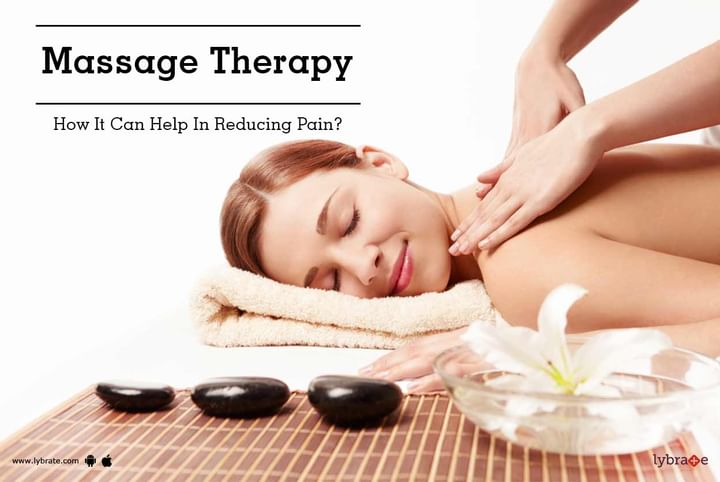Massage Therapy - How It Can Help In Reducing Pain?
When a child falls down and starts crying, the first thing a mother does is to pick up her child and console him/her and rub where you are hurt. Even when we grow older, our natural instinct when we bang into something is to rub the affected part. Even with modern medicines, the healing power of touch has made massages a popular type of alternative medication for aches and pains.
A massage helps relieve pain in a number of ways.
- First, it relaxes the body and mind and keeps the mind from thinking about the pain.
- Second, a massage warms the body and increases blood flow. This is very beneficial in cases of pain caused by sore muscles and stiff joints.
- Third, studies have also suggested that a massage can promote the release of opioids or natural painkillers in the brain. This hormone relaxes the body and encourages feelings of contentment.
A massage also reduces cellular stress and boosts mitochondrial biogenesis. This helps speed up the healing process of cellular injuries and gives energy to the cells. Many pregnant women also find a massage very helpful in dealing with labour pains. Other benefits of a massage include reducing anxiety, exercising muscles, enhancing immunity and easing a person’s dependence on medications.
There are many types of massages, but there is no clear evidence that makes one type of massage more beneficial than the others. While some people prefer a Swedish massage that involves kneading the skin, others prefer a deep massage or pressure point massages. Some of the common types of body pain that can benefit from a massage include headaches, lower back pain, arthritic knee pain, neck pain and fibromyalgia. A massage is also said to be helpful in reducing pain triggered by cancer and cancer treatment.
As compared to painkillers, a massage is typically considered safe as long as you are being massaged by a trained professional. In the wrong hands, a massage can, in fact, worsen pain. For slight, occasional pains, a massage is great, but when it comes to more chronic pains, it is best to consult a doctor before getting a massage. This is because the pain may be a symptom of a larger problem. Other instances when you should not get a massage include in cases of a fracture, deep vein thrombosis, burns or open wounds, severe osteoporosis or thrombocytopenia or if you suffer from a bleeding disorder.
In case you have a concern or query you can always consult an expert & get answers to your questions!



+1.svg)
